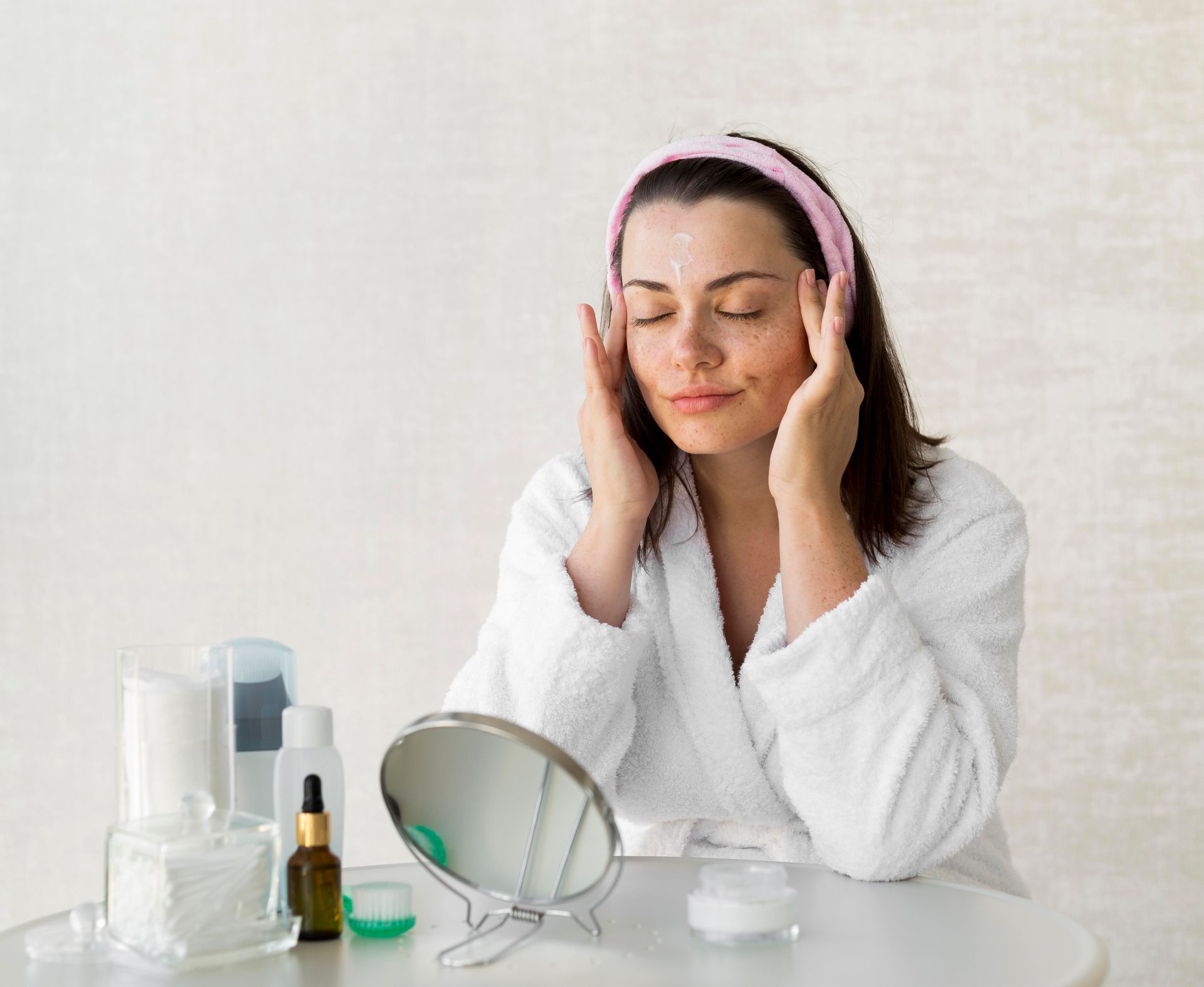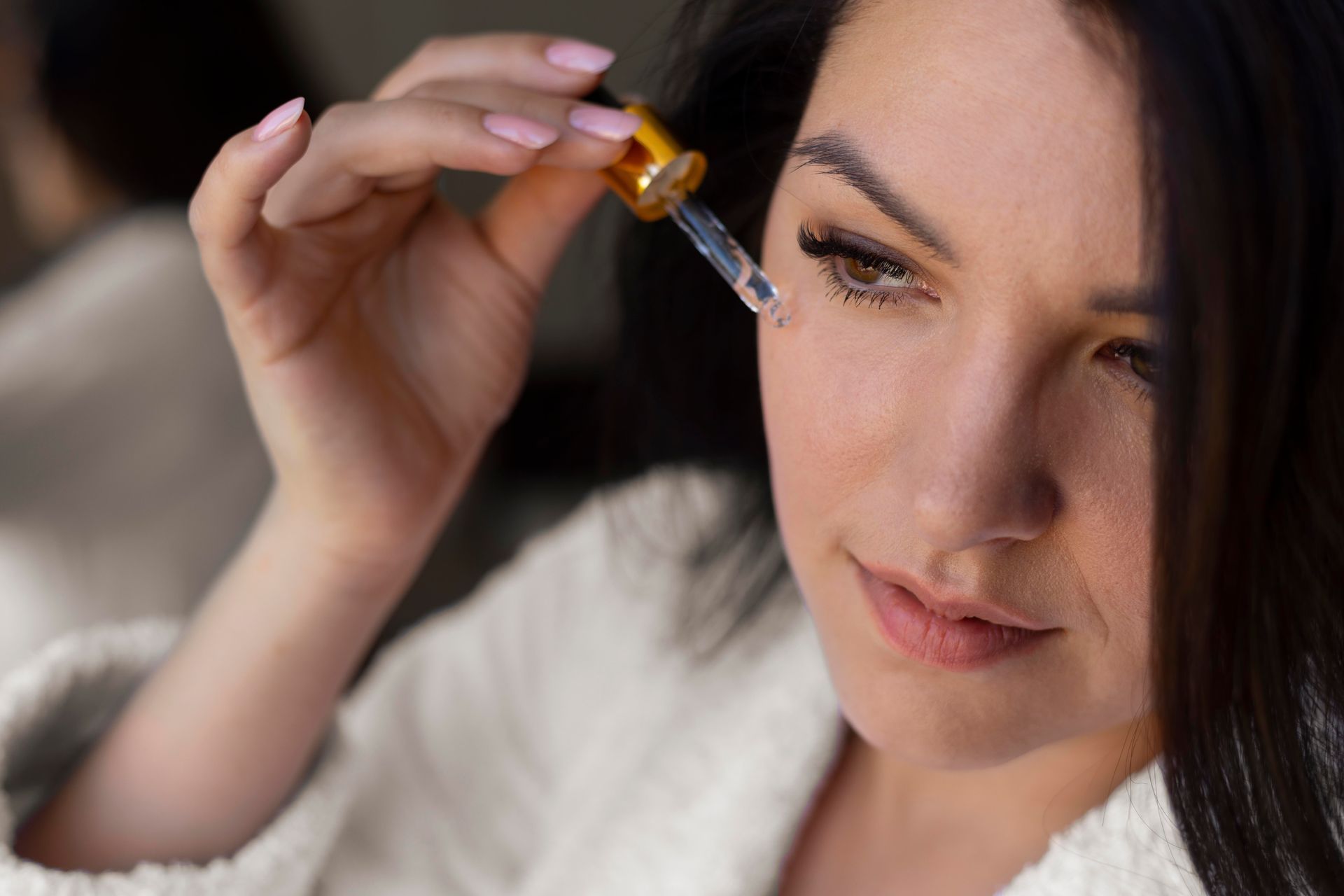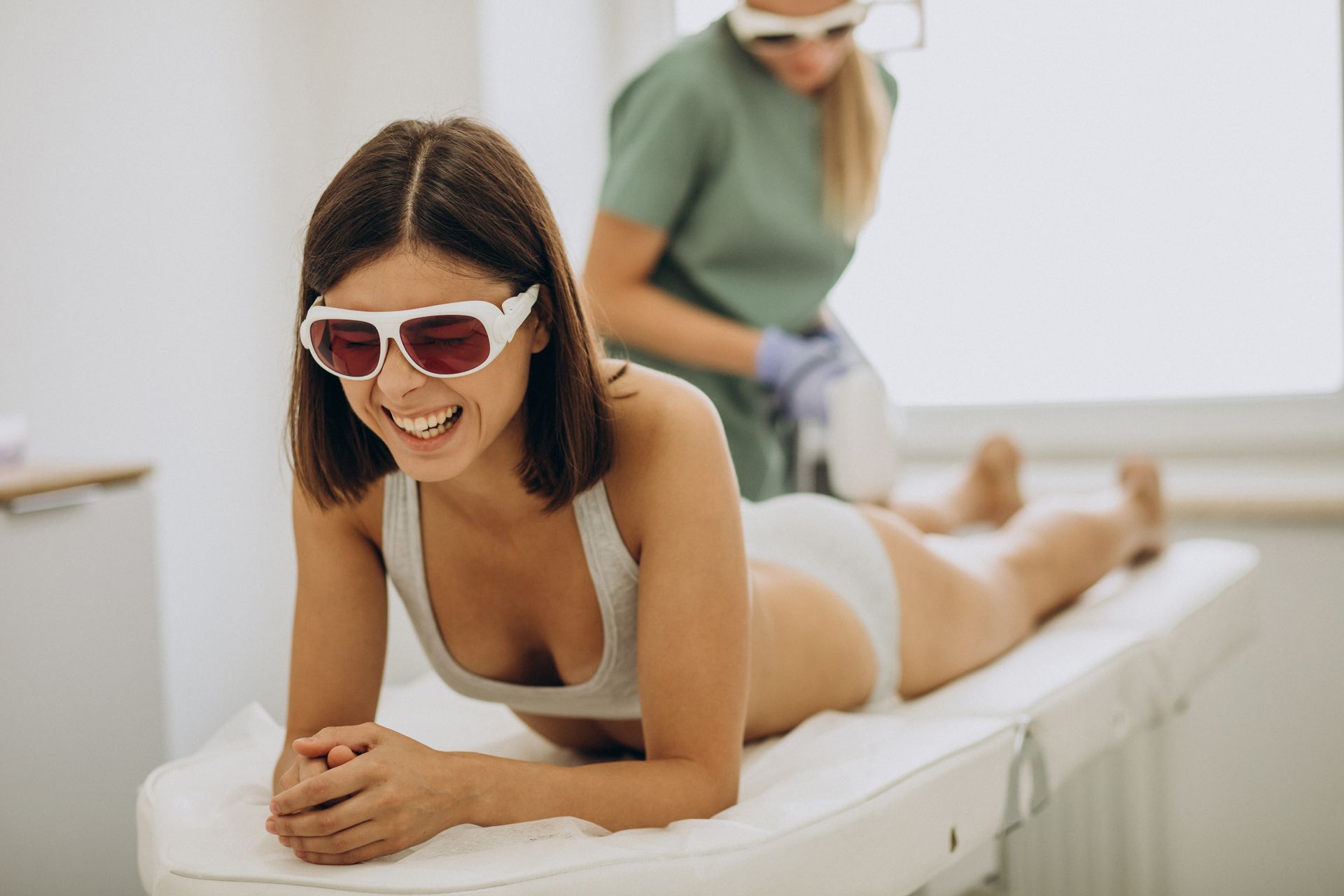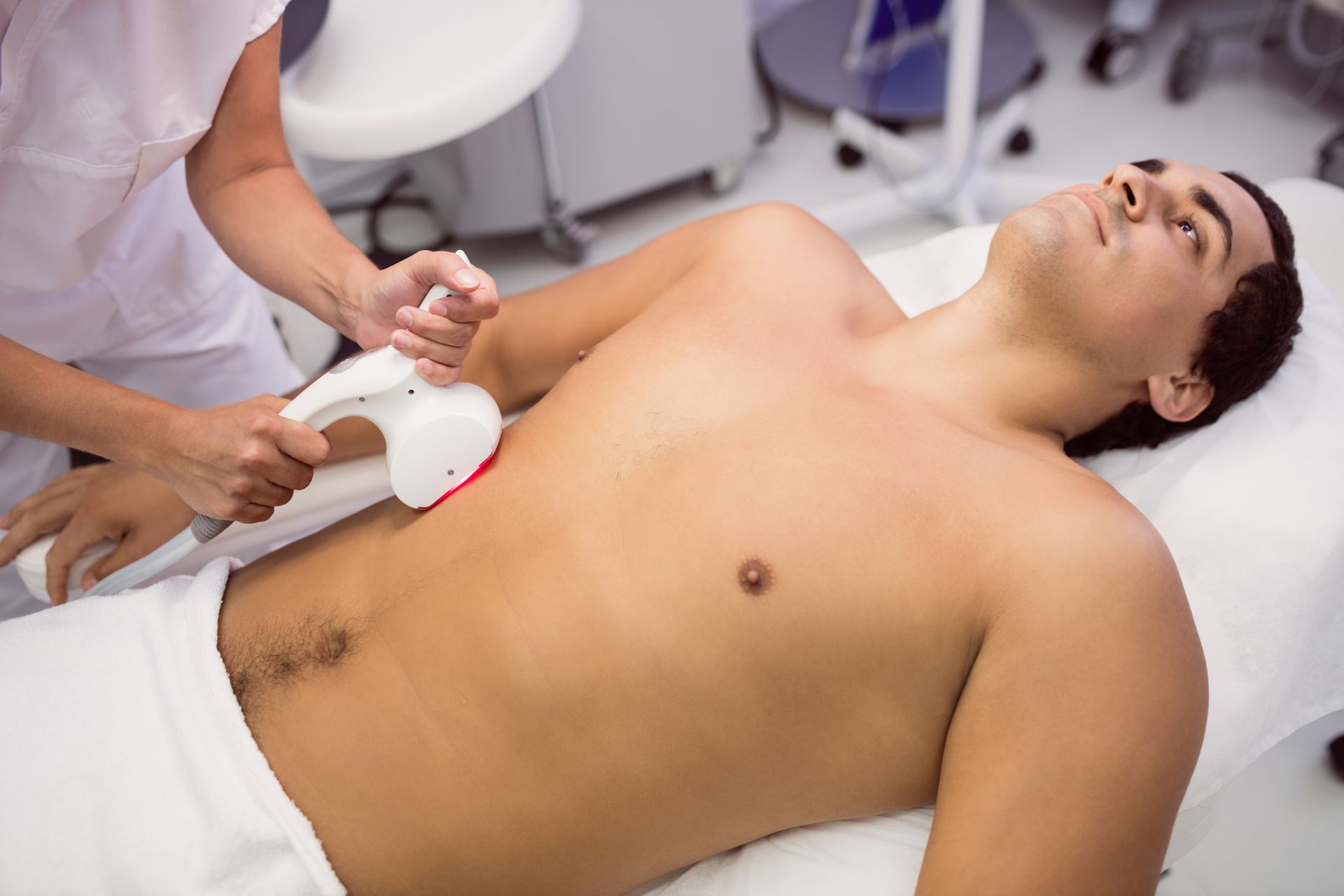Can You Get Laser Hair Removal While Pregnant?
Many pregnant women experience a common side effect of hormonal changes that cause the growth of light, downy hair in unexpected areas such as the belly, boobs, face, or neck. This is nothing to worry about and is actually caused by higher levels of androgen in the body. The increased levels of melanin in the body can also make body hair appear darker than usual. While this may be a new and unexpected development, it is a natural and temporary condition that should not cause alarm.
Many women experience this during pregnancy and it is simply the body adapting to changes in hormone levels. It is important to note that this hair growth will usually subside after delivery or after the body has returned to its pre-pregnancy hormone levels. In the meantime, there are various methods of managing excess hair growth such as shaving, waxing or tweezing, but it is recommended to avoid laser hair removal during pregnancy as it can be unsafe for the developing fetus.
The Natural Process of Hair Loss After-Childbirth
Typically, within about six months following childbirth, hair that is either soft and fluffy or dark in color tends to disappear. This is due to the hormones in your body returning to their regular levels. During this time, you may encounter a phenomenon called "telogen effluvium," which simply means that any additional hair that grew during pregnancy will suddenly shed. Don't worry though, as this is completely natural.
On the other hand, if you happen to be self-conscious about the hair on your body and find it challenging to remove unwanted hair in certain areas as your belly expands during pregnancy, you might be considering laser hair removal as a solution. Regrettably, this is not recommended.
The Risks and Precautions of Laser Hair Removal During Pregnancy
During pregnancy, hormonal changes can cause various bodily changes, including alterations in skin pigmentation. This implies that laser hair removal, a procedure that employs concentrated light beams to eliminate hair, may lead to permanent skin pigmentation damage, posing a minor risk. Even though there is no clear-cut clinical evidence that laser hair removal has any negative impact on developing fetuses, medical professionals tend to exercise caution and advise against it. As a result, esteemed laser hair removal clinics will refrain from offering this treatment to expectant mothers, not because of difficulty but because they prioritize the health and welfare of both the mother and the unborn child.
It is essential for pregnant individuals to be aware of the potential risks associated with laser hair removal and to consult with their healthcare provider before undergoing any cosmetic procedures. It is always better to take extra precautions to ensure a healthy pregnancy and the well-being of the child.
Alternatives to Laser Hair Removal During Pregnancy
During pregnancy, many women may wonder if it's safe to undergo laser hair removal treatments. While there is no definitive answer to this question, many experts recommend avoiding laser hair removal during pregnancy due to the lack of research on its potential effects on a developing fetus. Fortunately, there are alternative hair removal methods that are considered safe during pregnancy, including shaving, waxing, and tweezing.
Shaving
Shaving is one of the most common and convenient methods of hair removal during pregnancy. It is a quick and easy process that can be done in the shower or bath. It is also relatively painless and does not require any special tools or skills. Shaving needs to be done frequently, as hair grows back quickly, and can cause skin irritation or cuts if not done carefully.
Waxing
Waxing is another popular method of hair removal that can be used during pregnancy. Waxing removes hair from the root, providing a longer-lasting result than shaving. It is generally considered safe during pregnancy as long as the waxing is done in a clean and sterile environment. It can be painful and may cause skin irritation or allergic reactions in some individuals.
Tweezing
Tweezing is a method of hair removal that involves plucking individual hairs with a pair of tweezers. It is safe during pregnancy and can be done in small areas such as eyebrows or the upper lip. While it is time-consuming and may be uncomfortable, it is a good option for those who want to remove hair in small areas.
It's worth noting that the hormonal changes that occur during pregnancy can impact hair growth and texture, which can make hair removal more challenging. Therefore, it's necessary to be cautious when using any hair removal method during pregnancy to prevent any injury or skin irritation. Always follow the manufacturer's instructions carefully and seek medical advice if you encounter any unfavorable reactions. It's also advisable to avoid using hair removal creams while pregnant due to the potential risk of absorbing chemicals through the skin.
Communicating with Your Laser Hair Removal Clinic During Pregnancy
Finding out that you're pregnant while in the middle of a course of laser hair removal can be stressful. This situation can be easily resolved by communicating with your clinic as soon as possible. While every clinic has its own policy, most will allow you to postpone your treatment until after you give birth. It is essential to inform your laser hair removal clinic as soon as you know you're pregnant so that they can advise you on the best course of action.
If you're planning to conceive or are already trying to get pregnant, it is always advisable to verify the clinic's policy regarding booking and postponing appointments. A reputable laser hair removal clinic will have a clear and transparent policy that outlines what happens if you need to reschedule your appointment due to pregnancy or other medical reasons. It is important to select a clinic with transparent policies regarding booking sessions, postponing appointments, and the refund policy, if any. This way, you can be sure of what to expect in case of unexpected changes, such as an unplanned pregnancy.
Consult with Your Healthcare Provider Before Resuming Laser Hair Removal After Childbirth
There are no strict medical guidelines on when to begin laser hair removal after childbirth, but it is commonly suggested to wait at least six months after delivery. This waiting period allows your body to recover from the changes brought on by pregnancy and childbirth, as well as to regulate your hormone levels. For first-time mothers or those who require more time to recover, waiting longer may be necessary. It's important to ensure you are physically and emotionally ready to resume laser hair removal treatments, especially as caring for a newborn can be demanding.
If you had a C-section or an episiotomy during delivery, you should avoid having laser hair removal treatment on your bikini line until the scars have fully healed. This precaution is to prevent any possible complications that may arise from the procedure. It is crucial to give your body time to heal properly before undergoing any cosmetic treatments, especially in sensitive areas.
Keep in mind that each person's body and recovery process are unique, so it's important to consult with your healthcare provider before restarting laser hair removal after childbirth. Your healthcare provider can offer personalized recommendations based on your specific situation, ensuring that it is safe to continue the treatment. During this period, prioritizing your body's health and wellness is paramount to ensuring a safe and seamless recovery after giving birth.
Conclusion
Pregnancy can bring many changes to a woman's body, including the growth of unwanted hair in unexpected areas. While laser hair removal may seem like an attractive solution, it's important to consider the potential risks during pregnancy. It's best to avoid laser hair removal during pregnancy and opt for alternative hair removal methods. Most of these changes to your body will be resolved in the months following delivery. After childbirth, it's important to consult with your doctor before resuming any laser hair removal treatments. They can provide guidance on when it is safe to resume the treatment and advise you on the best course of action based on your individual circumstances. Prioritizing your health and well-being during this time is crucial for a safe and healthy recovery after childbirth.










